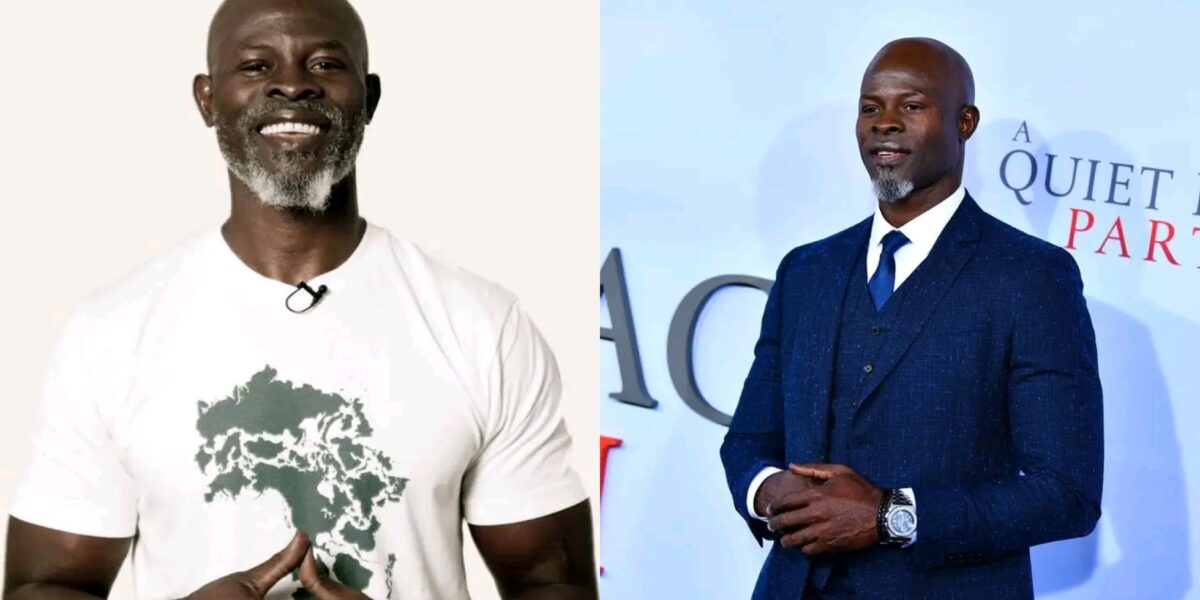Celebrated Beninese-American actor Djimon Hounsou has made startling revelations about his ongoing financial challenges, despite a decorated career spanning more than two decades in Hollywood. The two-time Oscar nominee shared his struggles during a candid interview on CNN’s African Voices Changemakers program, shedding light on the persistent issues of pay disparity and systemic racism in the entertainment industry.
Hounsou, known for his powerful performances in blockbuster films including “Gladiator,” spoke openly about the disconnect between his professional achievements and financial compensation. I’m still struggling to make a living,” the acclaimed actor admitted, highlighting a troubling reality that stands in stark contrast to his impressive portfolio of work and critical acclaim.
The actor’s disclosure becomes particularly striking when considering his distinguished career trajectory. With two Academy Award nominations and numerous high-profile roles in successful films, Hounsou’s continued financial struggles point to deeper systemic issues within Hollywood’s compensation structure. His statement about being “definitely underpaid” raises important questions about pay equity in the film industry, particularly for actors of color.
Hounsou’s experience with racism in Hollywood adds another layer to his financial challenges. He shared a particularly revealing incident regarding his Golden Globe nomination, where he faced prejudice from Academy voters who reportedly “thought that I had just come off the boat and the streets.” This perception persisted despite his demonstrated talent and success, leading to what he believes was an unjust exclusion from Oscar recognition.
The actor’s commentary on systemic racism in Hollywood is especially poignant, as he notes that “this conceptual idea of diversity still has a long way to go.” His observation that “systemic racism won’t change like that anytime soon” reflects a sobering assessment of the industry’s pace of progress in addressing racial inequities, both in representation and compensation.
This revelation from Hounsou comes at a time when Hollywood faces increasing scrutiny over its treatment of diverse talent. His story serves as a powerful reminder that critical acclaim and high-profile roles do not necessarily translate to financial security, particularly for actors of color in an industry still grappling with systemic inequities.
The disconnect between Hounsou’s professional achievements and his financial reality raises important questions about the film industry’s compensation practices. As an actor who has appeared in numerous blockbuster films and earned multiple prestigious nominations, his ongoing financial struggles suggest a troubling pattern of undervaluation that may extend beyond individual cases to affect other actors of color in Hollywood.
Hounsou’s willingness to speak openly about these challenges adds an important voice to the ongoing conversation about equity in entertainment. His experience demonstrates that even reaching the highest levels of professional recognition does not guarantee fair compensation or financial stability in an industry where systemic biases continue to influence career trajectories and earning potential.
The actor’s story also highlights the persistence of racial stereotypes in Hollywood’s decision-making processes. Despite his proven track record and critical acclaim, Hounsou’s account suggests that preconceptions about his background influenced important industry decisions, potentially limiting his opportunities and compensation.
As Hollywood continues to face pressure to address issues of diversity and inclusion, Hounsou’s revelations serve as a reminder that surface-level changes in representation must be accompanied by meaningful reforms in how the industry values and compensates diverse talent. His experience suggests that despite public commitments to diversity, the entertainment industry still has significant work to do in ensuring equitable treatment and fair compensation for all its artists.
This situation raises broader questions about the effectiveness of Hollywood’s efforts to address systemic racism and pay equity. As actors like Hounsou continue to speak out about their experiences, their stories contribute to a growing body of evidence suggesting that meaningful change requires more than just increased representation on screen.



